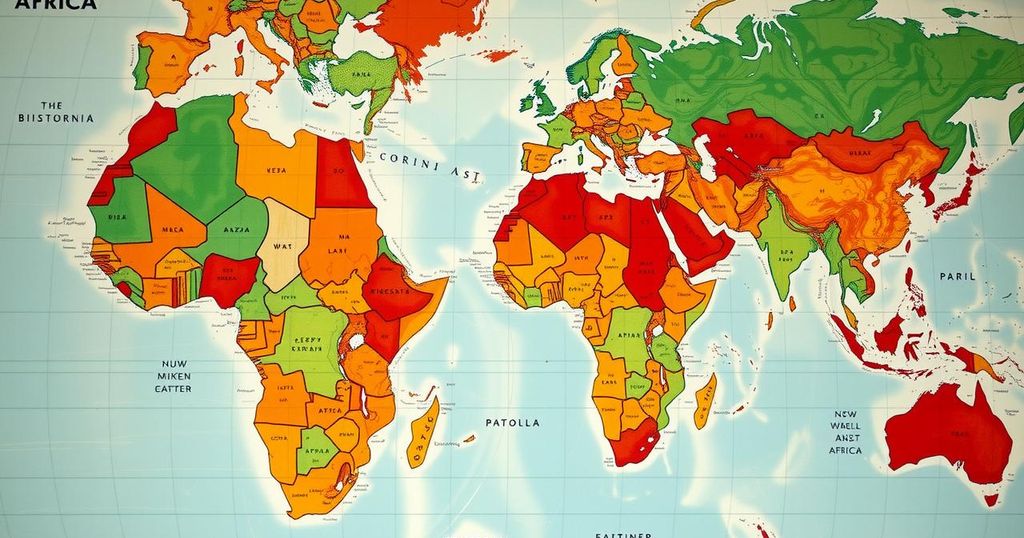Leaders from Egypt, Eritrea, and Somalia convened in Asmara to enhance regional security, addressing tensions from the Sudan conflict and the Ethiopia-Somaliland maritime deal. They agreed to deepen cooperation, particularly for Somalia’s stability, while navigating complex geopolitical rivalries, especially regarding Ethiopia.
In a significant move towards fostering regional security, the leaders of Egypt, Eritrea, and Somalia convened for an unprecedented summit on Thursday in Asmara. Following the summit, President Isaias Afwerki of Eritrea, Egyptian President Abdel Fattah al-Sisi, and Somali President Hassan Sheikh Mohamud committed to enhanced collaboration aimed at stabilizing the volatile Horn of Africa. This alliance arises amid growing concerns regarding unrest in Sudan, the maritime deal between Ethiopia and Somaliland, and escalating attacks in the Red Sea by Houthi rebels.
At the summit, the three leaders expressed their intent to strengthen cooperative endeavors to respect the sovereignty and independence of each nation. They underscored the necessity to address external influences affecting their internal affairs, advocating for a cooperative approach to achieve regional stability and sustainable development. Specific attention was given to Somalia’s challenges, agreeing to deepen collaborative efforts to empower the Somali National Federal Army in combating terrorism and safeguarding national borders.
The leaders’ discussion encompassed regional crises, underscoring the need for strategic cooperation through the establishment of a tripartite committee comprising their foreign ministers. President Sisi’s visit marked a historic moment, being the first by an Egyptian president since the early 1990s, further symbolizing the shifting dynamics in the Horn of Africa. This gathering reflects the current tension in the region, especially following Somalia’s protest against Ethiopia’s controversial deal with Somaliland, seen as a challenge to its territorial integrity.
Moreover, the summit reflects how Eritrea’s relations with Ethiopia remain strained, particularly over recent agreements with the Tigray People’s Liberation Front. Ethiopia’s foreign ministry maintains that relations with Eritrea are cordial, yet skepticism regarding the stability in the region persists. This trilateral engagement indicates a significant shift in alliances and reflects the complex geopolitical landscape, where historical tensions continue to influence current diplomacy in the Horn of Africa.
The Horn of Africa has become a focal point of geopolitical tension, particularly with the implications of the Sudan war, the controversial maritime agreement between Ethiopia and Somaliland, and ongoing regional instability. Relations among these nations have become increasingly strained, particularly between Somalia and Ethiopia, which have been historically contentious. Eritrea’s isolation and its long-standing rivalry with Ethiopia further complicate the dynamics. Recent military deals, such as the one between Somalia and Egypt, highlight the shifting allegiances in the region as nations seek to bolster their security in light of external and internal threats, particularly from extremist groups like Al-Shabaab and militant factions linked to the Houthi rebels.
The summit held in Asmara marked a pivotal moment in the collaboration among Egypt, Eritrea, and Somalia, reflecting a concerted effort to enhance regional security in the volatile Horn of Africa. With rising tensions stemming from conflicts and rivalries in the region, the leaders’ commitment to established cooperative frameworks aims to mitigate challenges in Somalia and address broader regional crises. The summit underscores a potential shift in alliances, signaling a complex geopolitical landscape that may influence stability in the Horn of Africa in the coming years.
Original Source: www.barrons.com






